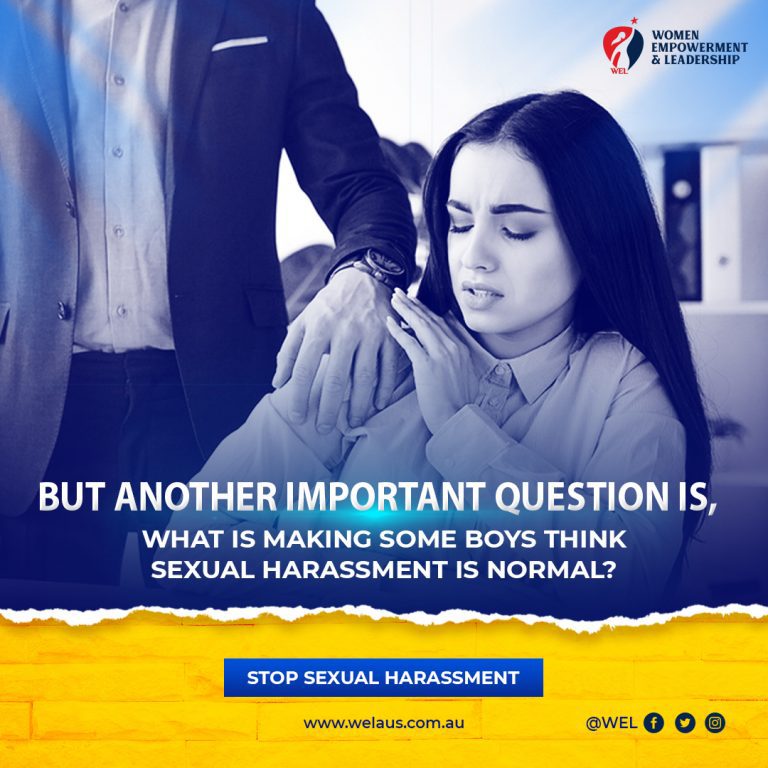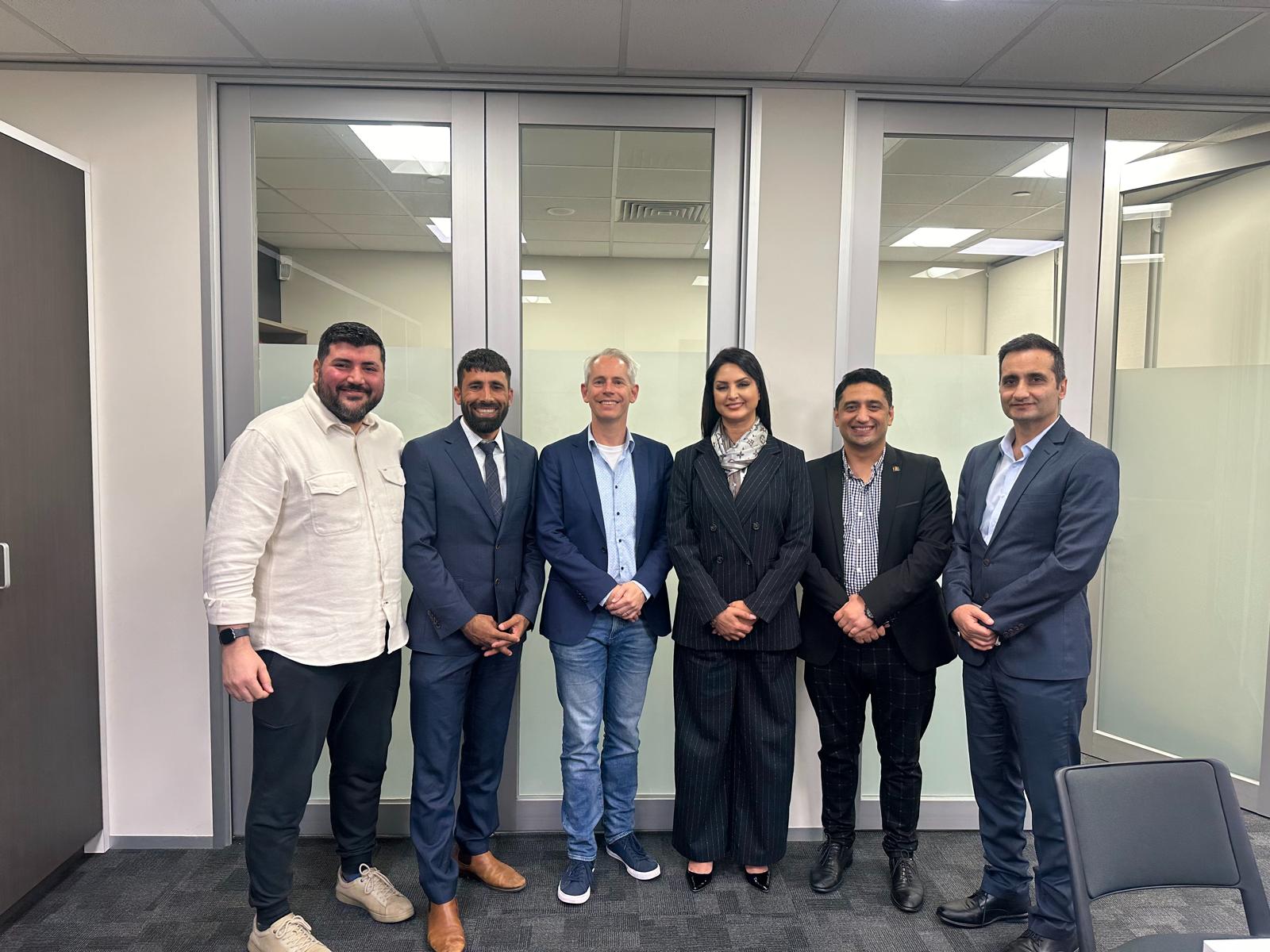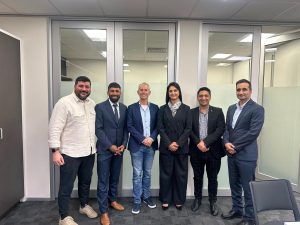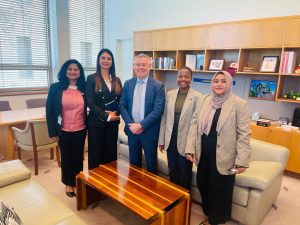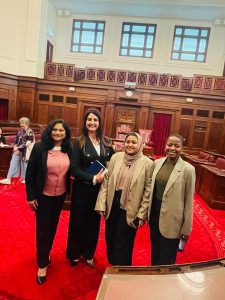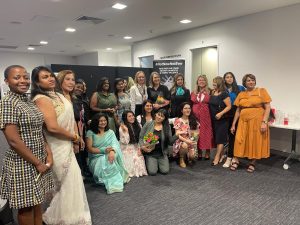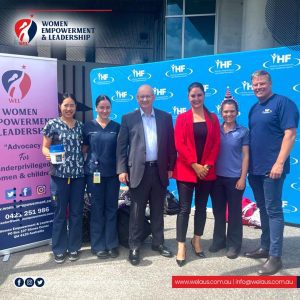Bio
Lindy Chen is the founder and Managing Director of ChinaDirect Sourcing Services, Chinadirect investment, author of ‘Import From China. How To Make A Million…and Not Get Burnt!’ , author of “doing business in Australia – for new immigrants”, and co-author of “Women On Top”.
Lindy is a dynamic, ‘bicultural’ business facilitator blending the best from the East and the West, with a natural ability to connect people from diverse backgrounds. She is considered one of Australia’s foremost experts on doing business with China, and was the winner of a International Woman of the year Awards Stevie awards 2015.
As a world leading authority on doing business with China, Lindy has featured in publications from The Courier Mail to BRW magazine, and has been a finalist and winner in many prestigious awards, including:
- Winner – HKABA-QLD Chapter Business Awards 2016 Judge’s Awards in exporting
- Winner – International Woman of the year Awards Stevie awards 2015
- Winner – HKABA-QLD Chapter Business Awards 2014 Excellence in importing
- Finalist – My Business Awards (2014) for Women in Business & Best Business Leader
- Winner – Australian Small Business Champion Awards, Entrepreneur of the Year 2013
- Winner – Lord Mayor Multicultural Award Entrepreneur of the Year (2013)
- Winner – HKABA-QLD Chapter Business Awards 2012 Excellence in importing
- State Finalist – Telstra Business Awards 2012
- Q400 – top 400 Queensland business 2012
- Finalist – Young entrepreneur of the year Brisbane 2011, 2010
- Finalist – My Business Awards 2011, entrepreneur of the year 2011
- State Finalist – Telstra Business Women Awards 2010
- State Finalist – Telstra Business Awards 2009
- Winner – Australian Small Business Champion Awards, Entrepreneur of the Year 2009
- National Finalist – Ethnic Business Awards 2009
- Women In Business Queensland Businesswoman of the Year Awards 2010 ’09, 08 and ‘07
- Australian Institute of Management’s Management Excellence Awards 2008
- Winner – Australian home-based business awards 2007
- My Business Awards, Fastest Growing Small Business 2007
Lindy has more than twenty years’ experience in International Trade, and is a member of the Australia China Business Council. She is also the founder of the Australian Charities Buying Group, which makes it possible for charities to source and import commonly needed products from China cooperatively, thus saving on costs and time. Her business goal is to grow ChinaDirect into the world’s leading sourcing firm.
She is a mentor for the QLD government. So far she has mentored more than 900 different business’s and has been instrumental in helping them achieve their objectives.
She is the president of Sunnybank Chamber of commerce. Under her leadership, within one year, she has tripled the membership of Sunnybank Chamber of commerce, and reached their yearly goal of with 200 members.
Lindy Chen is the founding president of Australia Blockchain Alliance (ABA) – a Not-For-Profit Association originated in Queensland Australia. She aims to set up ABA to educate, develop and empower the Blockchain community of Australia and connect with both global leaders and best practice. Her main objective is to uplift the Blockchain ecosystem and community and to address the critical skills gap in Australia with respect to Blockchain technology.
Lindy has helped many of her clients entering into the China market. She and her team has sold 1 million dollar property on wechat to china within 2 hours; they also export product and services to China.
Lindy have spoken for CBA, ANZ, BOQ, Redland city Chamber of Commerce and Southeast Chamber of Commerce etc. lindy have also spoken for WNA in 7 different cities, and CBA – national tour. Womens leadership symposium 2016 and 2019.
Lindy has trained many organization in Chinese culture awareness topic, such as Brisbane city council, central Queensland University, TAFE QLD, TAFE Adelaide, lend lease, Adelaide city council, Adelaide University, etc. Lindy’s goal is reaching 3000 people every year, to increase awareness about China for western world, to improve the success rate of small business operation.
Lindy has also trained 20 youth ambassadors from Emirates Diplomatic Academy in Abuddabi, UAE, about Chinese etiquette and cultural awareness, as well as 36 strategy.
Lindy has also created the frethan – a trusted international trade certificate storage platform based on blockchain technology, which will revolutionize the international trade industry.
Lindy is the 2019 Telstra business awards judge.
Lindy is the International Speaker of Australia Blockchain Alliance(ABA) Freelance since
2019 and also, Lindy is the 2019 Founding President of Australia Blockchain Alliance.
Lindy is the only recipients of the 2019 lord mayor multicultural scholarship of Australian institute of company directors course.
Her government profile is:
http://www.smallbusinesssolutions.qld.gov.au/content/sbs-standard.asp?name=MentorsBNN-LindyChen
Lindy Chen Wikipedia profile on Lindy Chen:
https://en.wikipedia.org/wiki/Lindy_Chen
Her accountant’s testimonial:
http://smaccountants.com.au/client-focus-lindy-chen/
Her Chinese profile:
http://baike.baidu.com/view/12122186.htm
Her own website:
http://www.lindychen.com.au/index.php
CHINA DIRECT SOURCING
Lindy formed ChinaDirect Souring in 2005 to assist Australian Companies source and import products from China. The company now includes assisting Australian companies who wish to export products to China.
ChinaDirect won the overall award in the 2007 Australian Home-Based Business Awards, as well as the Business Services category.
They were also honored by being named a finalist in the 2007 Australian Small Business Champion Awards, and a finalist in the 2007 ActionCOACH My Business Awards.
In less than six years since staring her business in 2005, Lindy has saved her clients over $5 million in procurement costs.
In 2008, ChinaDirect were again honoured by winning the Business Services category of the Australian Small Business Champion Awards for Qld, and in 2007, won the Australian Home-Based Business Awards.
Additionally, ChinaDirect Sourcing made the BRW Fast Starter List in April 2010 as one of the 100 fastest growing businesses in Australia. ChinaDirect has also made Q400 in Dec 2011.
Chinadirect sourcing is the global service partner of Alibaba.com.
CHINADIRECT INVESTMENT
Lindy formed ChinaDirect Investment in 2015 together with her business partner Robert Li to assist Australian Companies distribute products to China, expand into the Chinese market, with product and service knowledge to help them gain a market and attract Chinese investment for Australian business.
ChinaDirect investment scope of work, to assist Australian Business:
- Product/Service export to china
- Product distribution to china
- Attracting Chinese Investors
- Finding a Chinese JV partner
- China market entry analysis
- Business strategic acquisition
LINDY’S HISTORY AND BRIGHT FUTURE
Born in China, she migrated to Australia in 2002.
Education was Lindy’s access out of a poor background, so her personal goal is to provide education scholarships to 1,000 underprivileged children in China by 2017.
Her business philosophy is that the size of ChinaDirect’s cause will determine the size of its effect.
This led her to start Australia’s first national charities buying group, and plans to offer carbon neutral importing.
Lindy has strong leadership qualities that are demonstrated by her ability to motivate and inspire employees to fulfil their potential. Lindy’s contribution to the organisation’s success has been in developing a unique business model, and then systemising the business.
The company has experienced exponential growth, guided by a mission of “making clients prosperous and globally competitive”, with clients including MiniMovers and Merlo Coffee.
Her willingness to take risks and do things differently has had her overcome many obstacles to achieve success. This includes starting the business on a budget of only $2,000, and launching ChinaDirect Sourcing Services on a PC in an Internet café.
ChinaDirect operate differently to the average broker. For example, they are transparent in providing full details of Chinese suppliers they source for Australian clients, and refuse commissions from Chinese suppliers.
Lindy has an impressive track record in China and Australia.
Before settling in Australia, she held senior management roles in Chinese and Australian companies.
However, it wasn’t all up and up. Upon arriving in Australia in 2002, Lindy couldn’t find a job, so took on various volunteer roles.
This included raising awareness of China by organising community events for her local council, promoting the use of public transport, and running events showcasing the talents of multicultural youth.
Then Lindy got a big break… Selling movie tickets door to door! After three weeks she’d made the grand sum of $100, and wore out two pairs of runners. But she learnt how to read a map and gained the confidence to talk English with people.
Lindy then spent seven months studying English, at the end of which she taught Business Administration at The Australian Business College in Adelaide. She then took up a position lecturing in International Trade at TAFE in South Australia.
During this time, friends were asking her to source products for them from China. She had an extraordinary talent for this, and with high demand for this service, turned it into a business.
With her strategic project management skills and strong business acumen, she continues to assist many Australian companies grow through product innovation and bottom line savings.
ChinaDirect gains most new clients after they see Lindy talk at China business seminars, or through word of mouth. Lindy is passionate about building bridges between China and Australia, and has given her time freely to speak for organisations such as the Australian Institute of Management, Queensland Police and James Cook University.
She has a strong desire to raise Australian’s awareness of China, and vice versa, so the two countries can grow harmoniously together. Recently her book, ‘Import From China…How To Make a Million and Not Get Burnt’, was published including a DVD version, both of which has made record sales and Lindy is already on her 5th Edition.
Lindy is a blockchain entrepreneur and she is passionate about technology. She saw blockchain as the future of the technology. Lindy sets the goal to grow and enhance the Australian Blockchain community and to further enhance the ecosystem. To achieve this, Lindy and her team, through the local community, and industry professionals aim to develop and bring forward activities such as:
- Social media content sharing
- Training and education programs
- Forum and workshop
- Weekly Meetup groups
- Incubation programs
- Community exchange and innovation challenges
So far, Lindy Chen lead her team organized numerous events:
- Sep 2018 a blockchain forum with 300 participants;
- Nov 2018 two workshop with 140 people discussed Blockchain impact.
- Feb 2019 and May 2019 in Brisbane with 150 people discussed the blockchain real for business application.
- Since 24th May 2019, a weekly blockchain meetup started in Brisbane.
- On 7th & 8th Oct 2018 we run a 2 days Master Class on blockchain and whitepaper
- Daily blockchain YouTube updates
Lindy and her team on 5th March 2019 presented the ContraCoin project at the establishment ceremony of “blockchain application and investment alliance” in front of more than 500 participants in Hongkong.
Australia Blockchain Alliance has also set up vital partnership with more than 10 organizations in HK, Philippines, Japan and China. We have also invited China’s leading Blockchain Authority to deliver educational program for our participants.
Lindy chen has presented the following topic related to blockchain:
- Blockchain 101;
- Frethan – a trusted international trade certificate storage platform based on blockchain technology
- Blockchain & supply chain
- Making blockchain real for business
- Blockchain and future;
- Facebook libra 101;
- Facebook libra and bitcoin;
- Blockchain and new retail.
Lindy has made a great effort to improve understanding of and support for blockchain technology among the small business / start up sector.
PERSONAL TIDBITS
- Prior to the Communist Revolution in 1949, Lindy’s forebears were reasonably wealthy, until they had all assets forcibly removed by the Government.
- Born and raised on a military base known only as ‘143’ in remote China, her father was imprisoned for three weeks when her sister stepped on a Chairman Mao chalk drawing on the footpath.
- After the Tiananmen Square incident, Lindy underwent ‘thought examination’ for two hours each week at University, made to spill any ‘not so good’ thoughts against the Communist Party.
- The Chinese know more about Australia than we think. Lindy learned ‘Click Go The Shears’ in Grade 3!
- Her father earned $1.34 per week to raise a family of six when she was growing up. He has since retired and now receives a $17 per week pension.
- At university she was sponsored by the State for her skipping prowess, and became an accomplished table tennis player and swimmer.
- Lindy credits her early business success to reading the ‘7 Habits of Highly Effective People’, and, at 24, she became the first person to translate the 350 page book into Chinese.
- Lindy has a head for numbers. She has a degree majoring in mathematics, and often surprises people with her mental arithmetic ability.
- There was much to learn when Lindy arrived in Australia. Lindy tried bargaining with a checkout operator at Woolworths, but to no avail!
- The first book she read in Australia was The Tax Payers Guide (the thick one!), cover to cover.
- Lindy loves karaoke, salsa dancing and watching Australia’s Funniest Home Videos.
- On her first trip to Australia in 1997, she found $5 in the surf on the Gold Coast. A good omen!
PROFESSIONAL QUALIFICATIONS
- Bachelor of Education
- Bachelor of Science
- Certificates IV in:
– Small Business Management
– Workplace Training & Assessment
– English Proficiency
